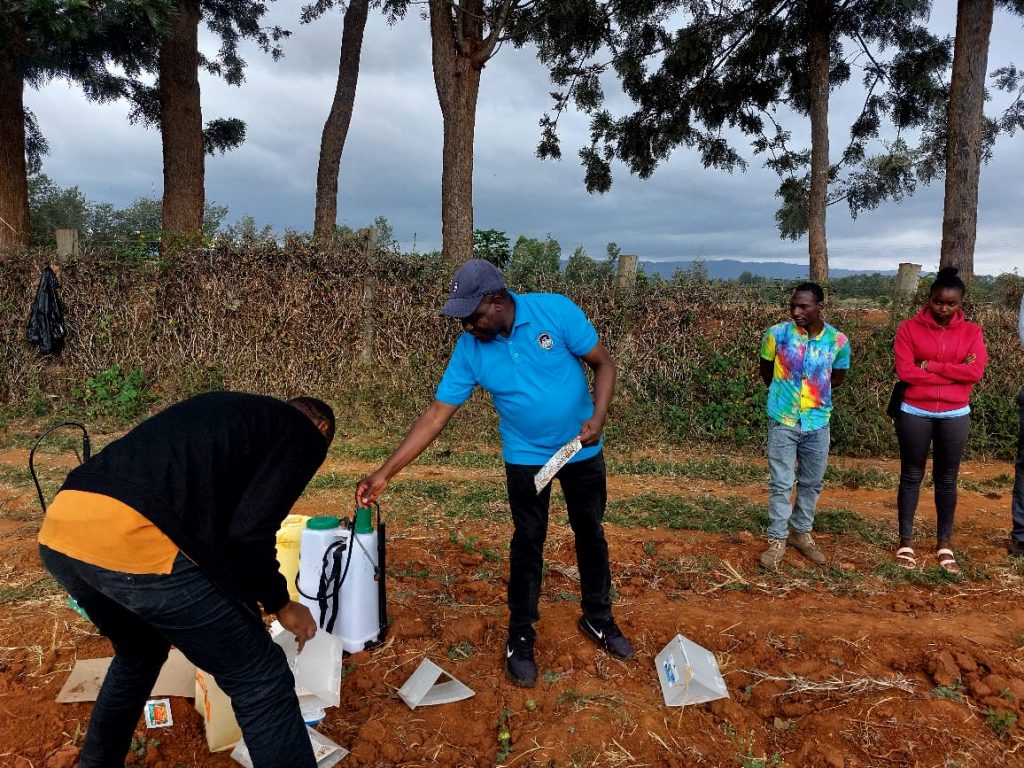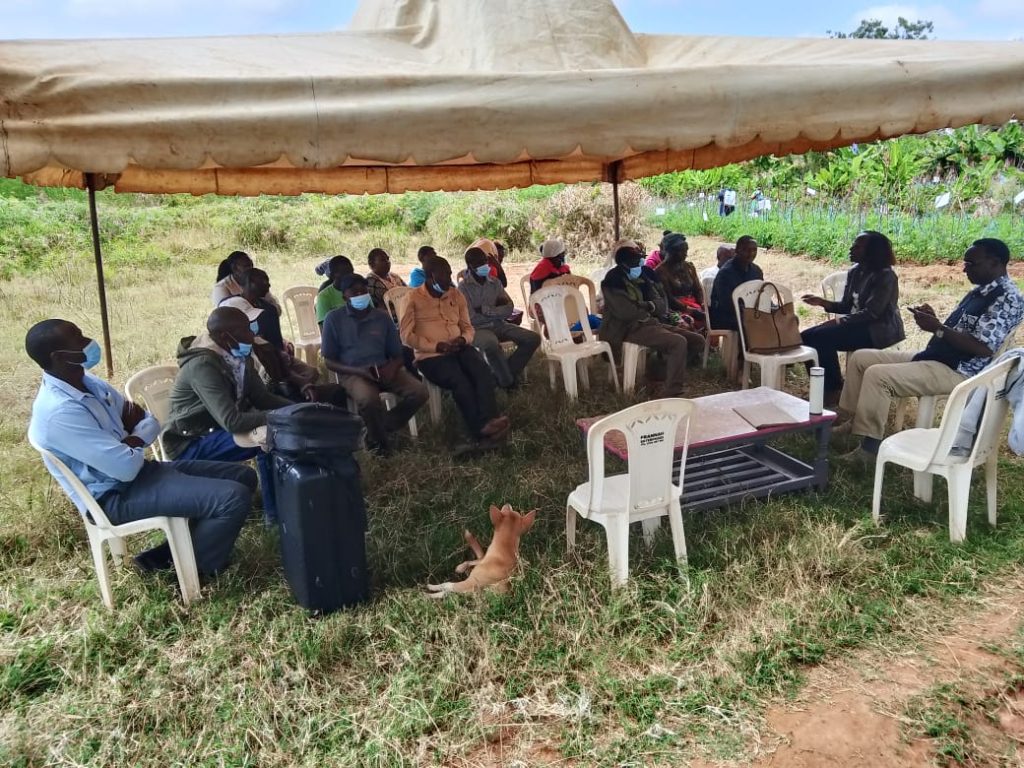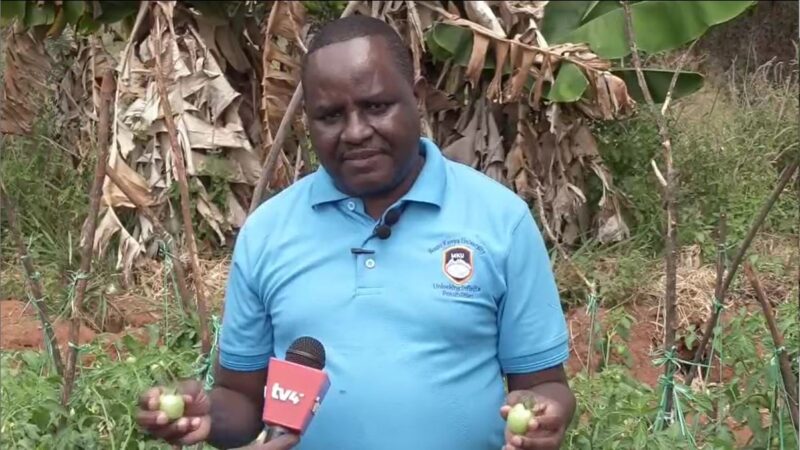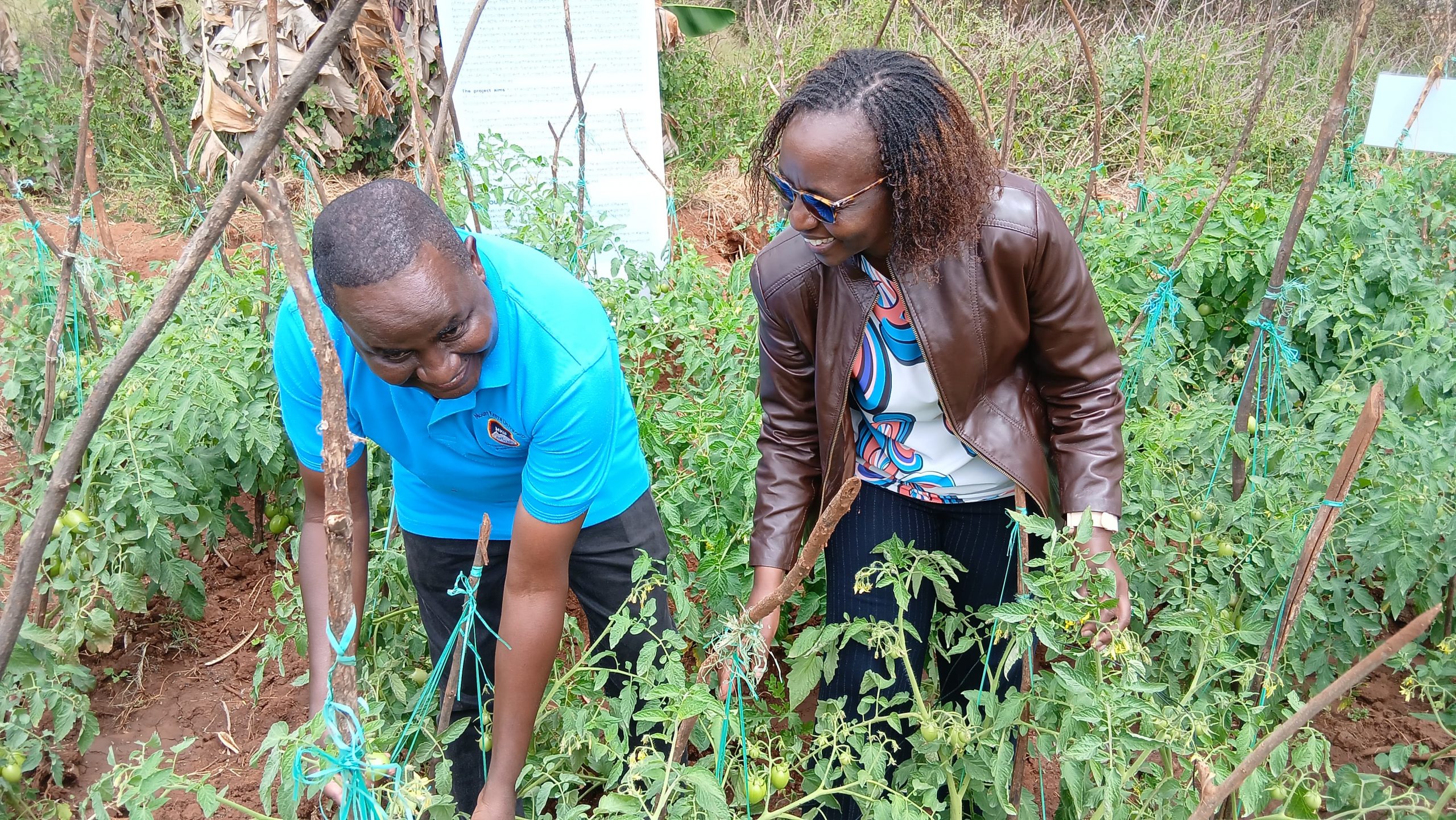Farmers in Machakos County have been encouraged to adopt biological pesticides as a safer and more sustainable alternative to conventional chemical-based pest control.
During a one-day training session held in the Kabaa area and which was organized by Mount Kenya University (MKU) in partnership with the University of Nairobi and other stakeholders, the farmers were challenged to shift from chemical to biological solutions which is both an economic and ecological necessity.

The training, which brought together more than 30 farmers from across the county, sought to equip participants with practical knowledge on using biological pest control methods to improve yields and protect the environment.
According to Prof. Cecilia Moraa Onyango from the University of Nairobi’s Department of Crop Science and Crop Protection, farmers are spending heavily on chemical pesticides that damage the environment and harm long-term soil health.
“Biological pesticides are a viable alternative that lower costs while supporting the ecosystem,” she said.
Her sentiments were echoed by Dr. Allan Mweke, a lecturer in the Department of Animal Health and Production at MKU who noted that the overuse of chemical pesticides has led to growing resistance among pests, reducing the effectiveness of such treatments and compromising food safety standards.

“Kenya has experienced increased interceptions of agricultural exports in international markets due to high levels of pesticide residues. Biological pesticides not only combat resistant pests effectively but also reduce the risk of losing markets due to non-compliance with residue limits,” stated Mweke.
During the training, farmers were shown how to apply biological pest control methods in the field.
The event is part of a broader regional initiative titled Advancement and Adaptation of Agricultural Biologicals to Meet Sub-Saharan Africa Smallholder Farmers’ Needs and Build Sustainable Food Systems (AgBio4SSA).

The project, funded by the National Research Fund, spans Kenya, Tanzania, and South Africa, focusing on sustainable agriculture practices.
In a separate development, MKU has announced plans to plant over 1,000 tree seedlings during its annual tree-planting exercise set for July 11, 2025, in Thika town.
Ends………………../

Facebook Comments